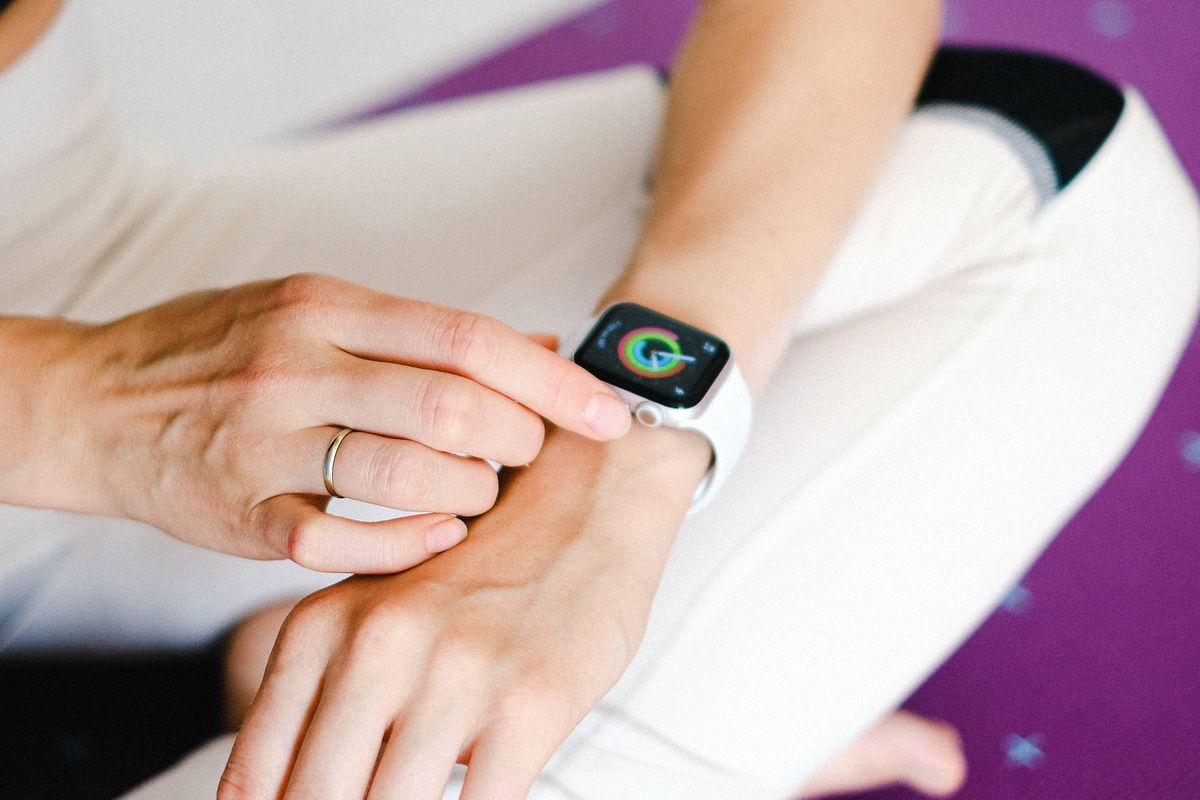Woman kept getting alerts from her Apple watch about her heart. They wound up saving her life.
She felt fine. But the watch knew better.

Apple watch notifications saved this Maine woman's life.
In 2022 Kim Durkee, then 67, of Solon, Maine, told Today that she purchased an Apple watch two years ago to count her steps and to get help if she fell. But she ended up getting a lot more than that out of her watch. In fact, it wound up saving her life.
In May 2022, Durkee got an alert from her watch in the middle of the night that said she appeared to have an abnormal heart rhythm and suggested atrial fibrillation. "The message basically said something to the effect of, 'You are in a resting state but we noticed AFib,'" Durkee told News Center Maine.
The Mayo Clinic describes atrial fibrillation as an “irregular and often very rapid heart rhythm (arrhythmia) that can lead to blood clots in the heart.” It increases the risk of stroke, heart failure, and other heart-related complications.
Durkee ignored the warning because she felt fine. “I didn’t have one single hint that there was something wrong in my body, not one,” Durkee told Today. But her Apple watch went on to wake her up three nights in a row from midnight to 4 a.m. So, she decided to go into the emergency room in early June.
Apple watches can be useful for monitoring one’s health but they shouldn’t be seen as a replacement for a regular checkup with a doctor. However, they are able to monitor the heart for irregularities and if they find an irregular rhythm five out of six times within 48 hours, users are sent an irregular rhythm notification.
As of 2025, however, a recent class action lawsuit filed against Apple has raised concerns about some Apple Watch wristbands, claiming they contain and expose wearers to harmful "forever chemicals" or PFAs. According to CNET, the lawsuit was filed in the United States District Court of Northern California about the Sport Band, Ocean Band, and Nike Sport Band containing harmful levels of PFAs and claims Apple was aware. Apple has denied these claims, however, and insists Apple Watches are safe to wear. In Durkee's case, it saved her life.
A 2020 study found that 34% of individuals who received a notification of arrhythmia were later found to have atrial fibrillation.
She told the doctor on duty that her Apple watch said she has AFib and he was a little skeptical. How could a watch replace the expertise of a heart specialist? “He looked at me, like, ‘Really, your watch told you you have AFib?’ Everybody in the hospital was amazed. I was like the talk of the hospital,” she said.
“He did some tests and he said, ‘Your watch is right, you’re in AFib,’” she added.
After an echocardiogram, the doctors also discovered that she had a myxoma tumor in her heart. These noncancerous tumors are rare, but they grow very rapidly. If the watch hadn’t notified her of her heart irregularity she could have been in real trouble.
On June 27, 2022, she underwent a five-hour open heart surgery and has since made a full recovery.
"I asked Dr. Osho in Boston who did the surgery and I also asked my doctor up here when I went for a check-up ... They both said the same thing, [that] I probably would've had a massive stroke, and they would've just said she died and they never would've known I had the myxoma," Durkee told News Center Maine.
"So, I'm very grateful to be alive. So, without that watch, I might not be having this conversation with you right now,” she told WCVB.
This article originally appeared three years ago.
- Woman lists 10 examples explaining why this world is being 'built for ... ›
- 911 operators share the wildest calls that had them laughing ›
- Apple urges users to update their phones after hack - Upworthy ›
- Everyone needs to know CPR. A two-minute video teaches it. - Upworthy ›
- Woman's Oura ring alerted her to cancer symptoms before diagnosis - Upworthy ›
- 4-year-old wakes up from heart surgery and bursts into rendition of "I'm Still Standing" - Upworthy ›






 A woman is getting angry at her coworker.via
A woman is getting angry at her coworker.via  A man with tape over his mouth.via
A man with tape over his mouth.via  A husband is angry with his wife. via
A husband is angry with his wife. via 
 Curling requires more athleticism than it first appears.
Curling requires more athleticism than it first appears.
 Mom hugging crying daughter
Mom hugging crying daughter Dad kissing child on cheek
Dad kissing child on cheek Mom comforting daughter
Mom comforting daughter

 Comfort in a hug: a shared moment of empathy and support.
Comfort in a hug: a shared moment of empathy and support. A comforting hug during an emotional moment.
A comforting hug during an emotional moment. Woman seated against brick wall, covering ears with hands.
Woman seated against brick wall, covering ears with hands.